2024: A landmark year of impact for IBES
Celebrating its 10th year, IBES marked 2024 with groundbreaking achievements in its efforts to advance a just, sustainable future.
2024: A landmark year of impact for IBES
Celebrating its 10th year, IBES marked 2024 with groundbreaking achievements in its efforts to advance a just, sustainable future.
In 10 short years, IBES has earned a reputation as a global leader in interdisciplinary scholarship and research that helps move the needle on some of the most intractable climate challenges. With a bold new five-year Strategic Plan, IBES looks to equip and empower the next generation of climate and sustainability leaders by focusing its research and education programs on identifying and implementing solutions across scales and across sectors.
As we mark this milestone, we celebrate our growing community of climate and sustainability champions across College Hill and beyond who continue to play a critical role in achieving our most ambitious goals.
Celebrating 10 Years
As IBES marks a decade of impact, we reflect on our journey, achievements, and vision for a bright future.
IBES by the numbers
140+
undergraduate concentrators
27
core faculty
from 10 different academic departments
$ 6M
per year
in sponsored research
80+
affiliated faculty
from 30 units
1500+
students enrolled in classes taught by IBES faculty
during the 2023-24 academic year
20+
scholarly publications featuring IBES research
in 2024
475+
Alumni & Friends Network members
IBES is known for really thinking about how to prepare students who will become leaders as we envision how to build a just and sustainable world.
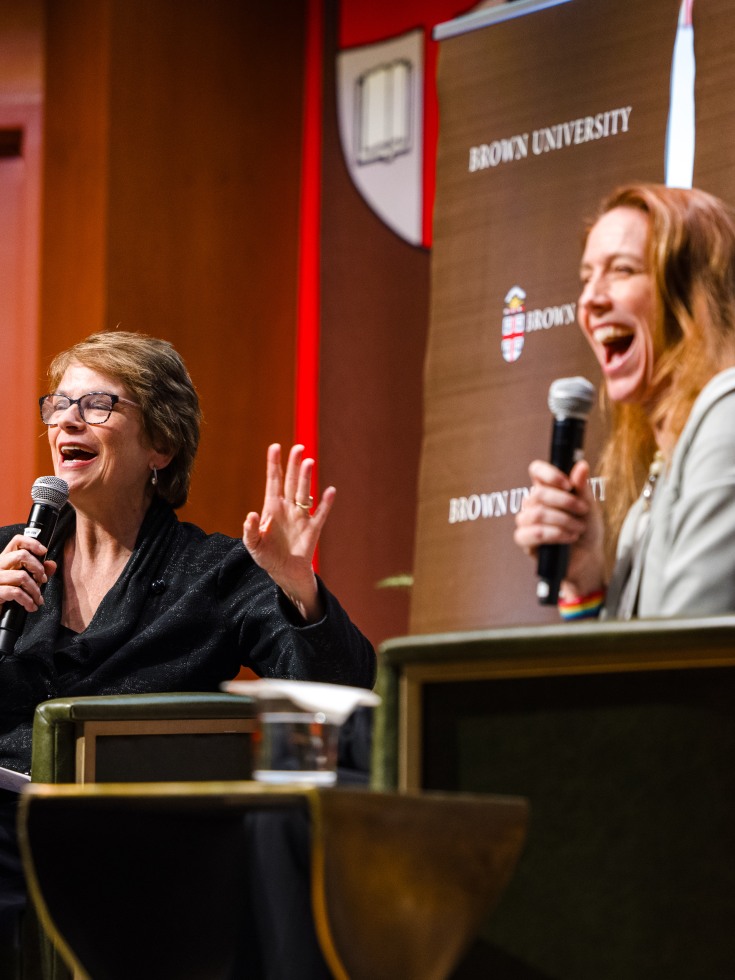
Strategic Plan Goal #1: IBES is educating tomorrow’s leaders
New curriculum updates and hands-on learning opportunities, all part of a growing commitment to reach and educate more students than ever, have brought IBES’ educational vision and priorities to life.
A record-setting graduating class
In May 2024, the Environmental Sciences and Studies program celebrated its largest Commencement to date with more than 60 graduating seniors—a 30% increase from 2023 and a 100% growth over the past five years.

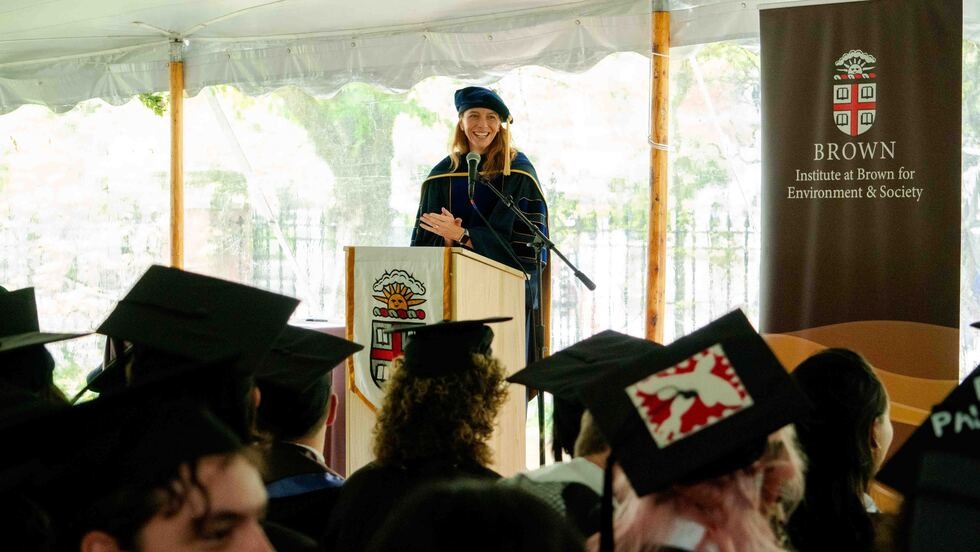

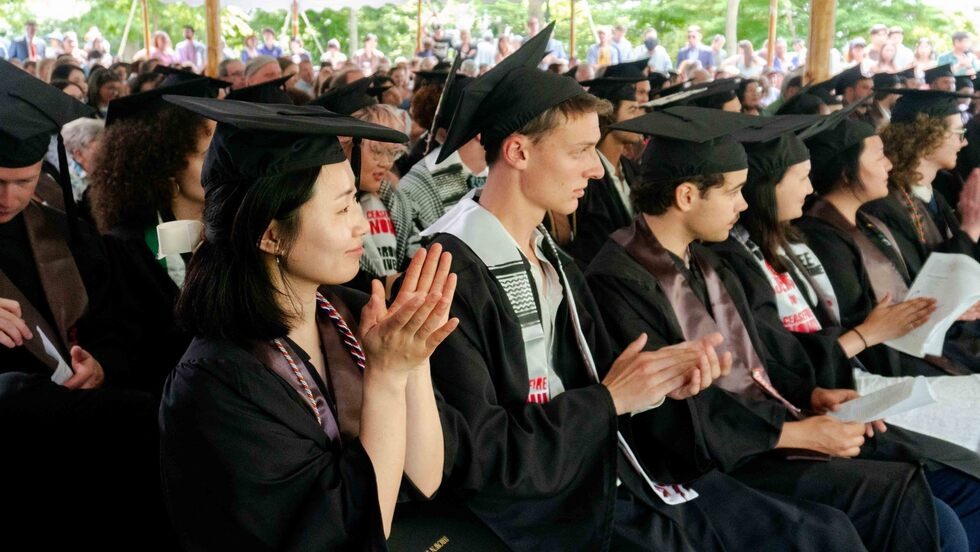
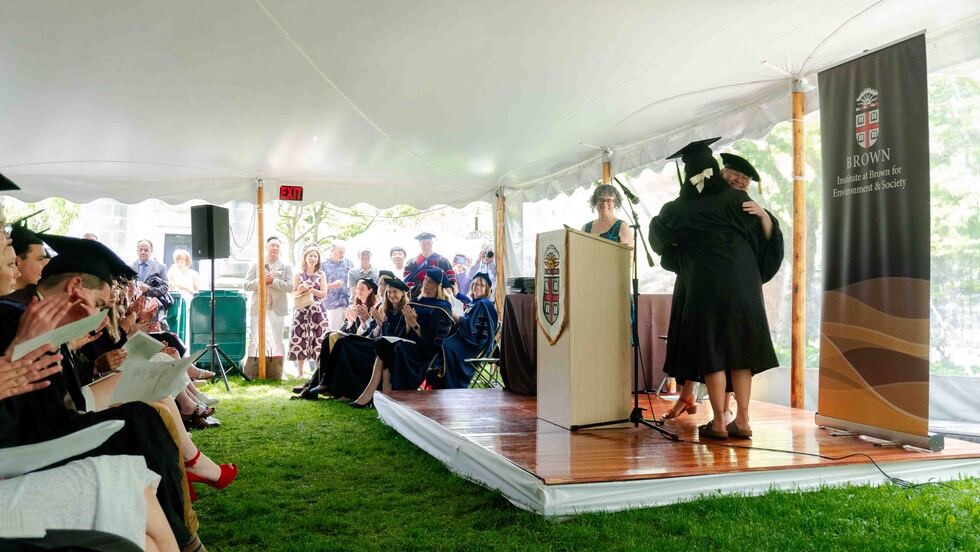
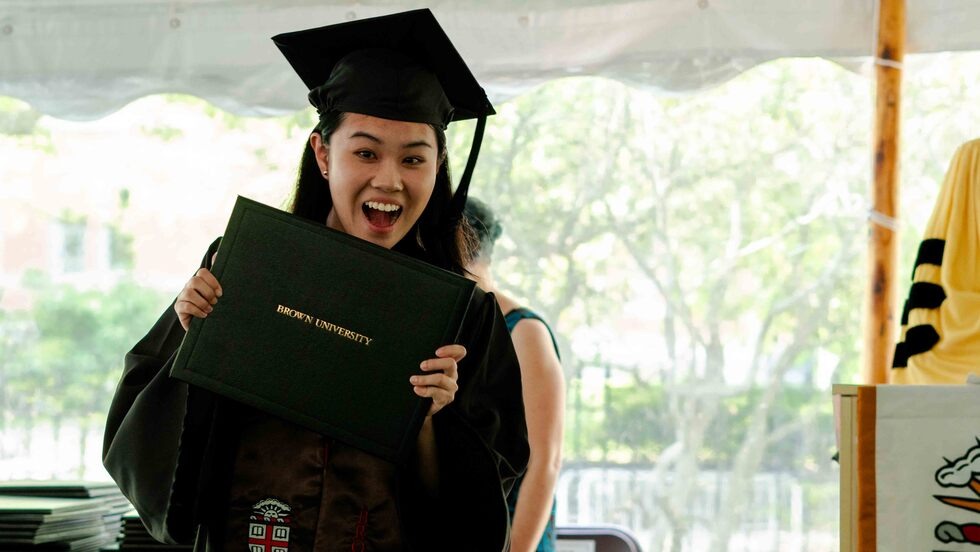
A revamped curriculum sparked growing interest among students
In 2024, IBES launched a revamped curriculum for Environmental Sciences and Studies, offering greater flexibility and emphasizing cross-disciplinary learning.
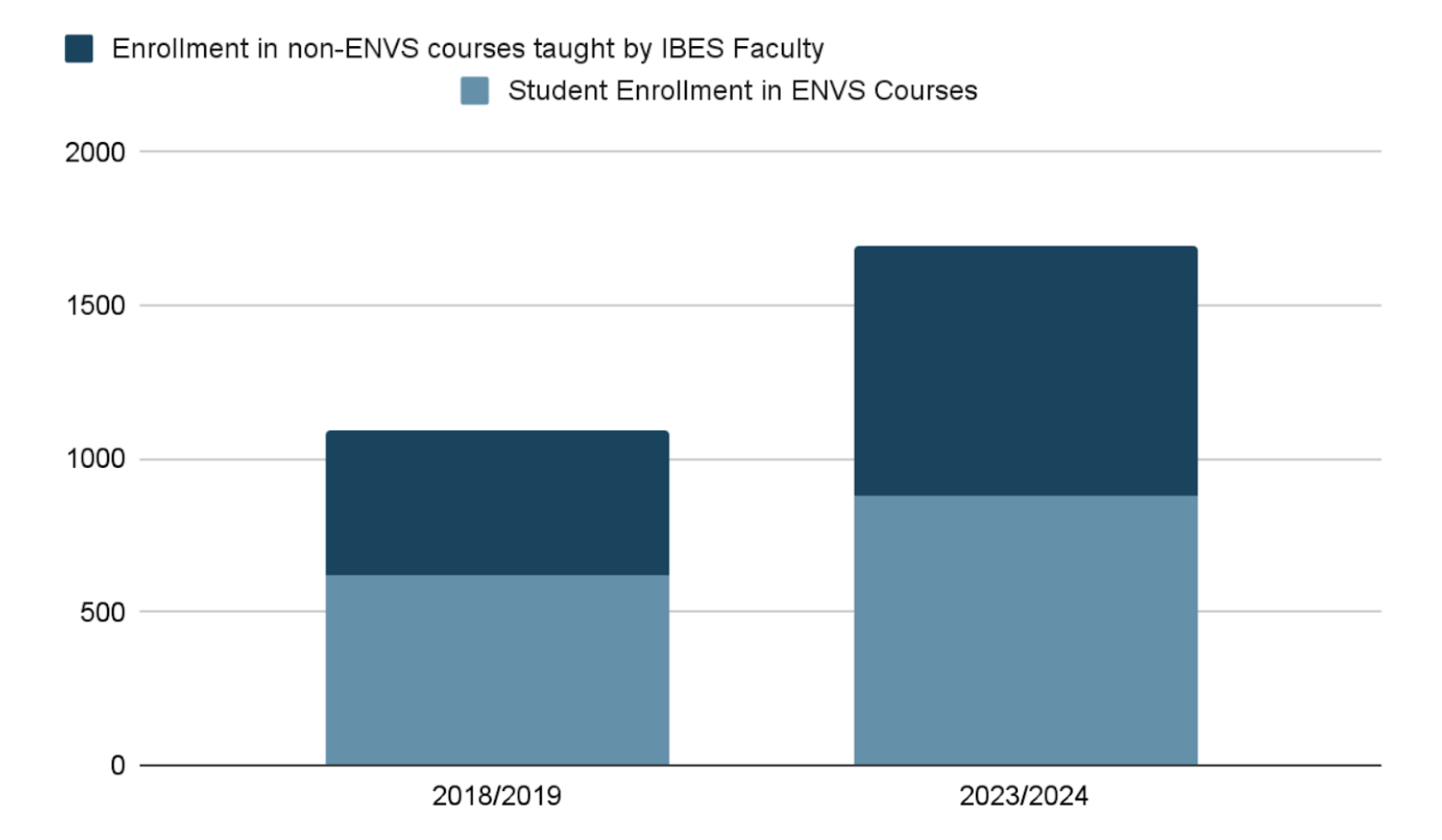
These updates have already led to more dual concentrators this year, especially among seniors. Prompted by IBES’ growth—tripling the amount of ENVS concentration declarations submitted since 2012—and feedback from students and faculty, the revisions streamline advising and prepare students to address environmental challenges with even more practical, interdisciplinary skills. Enrollment in IBES courses has grown 33% since 2020, and dual concentrators are projected to make up 46% of 2025 graduates, up from 34% in 2021.
Logan Torres ’24 received inaugural Harold Ward Prize for Environmental Impact
At IBES’ 10th anniversary celebration in May, Logan Torres ’24 received the inaugural Harold Ward Community Engagement Prize, honoring an ENVS senior whose work improves Rhode Island and beyond.
Named for Professor Emeritus Harold Ward, a pioneer in environmental education, the prize honors an ENVS senior whose work improves Rhode Island and the world. Torres distinguished himself as a University Presidential Scholar, student mentor, and through several public service and community engagement internships, and he has since begun pursuing a master’s at the Yale School of the Environment. Ward passed away in December of 2024 but was able to witness Torres receive his award in May.
Leadership transitions in undergraduate studies
.png)
In November, Dawn King stepped into a new role as Deputy Dean for the College of Curriculum, where she oversees the College’s programs and policies for undergraduate courses of study. She serves as a liaison to faculty and staff in academic departments on curricular issues and, as a member of the College Curriculum Council, reviews new and existing undergraduate academic programs. This prestigious new role reflects her longstanding contributions to undergraduate education.
Succeeding her as IBES Director of Undergraduate Studies is Mindi Schneider, marking the beginning of an exciting new era for IBES leadership. While King transitions from her previous position, she remains deeply engaged with IBES, continuing to teach and mentor students.
Outside-the-classroom experiences connected students with real-world decision-makers
IBES took students beyond the classroom to engage directly with leaders in policy, finance, and conservation.
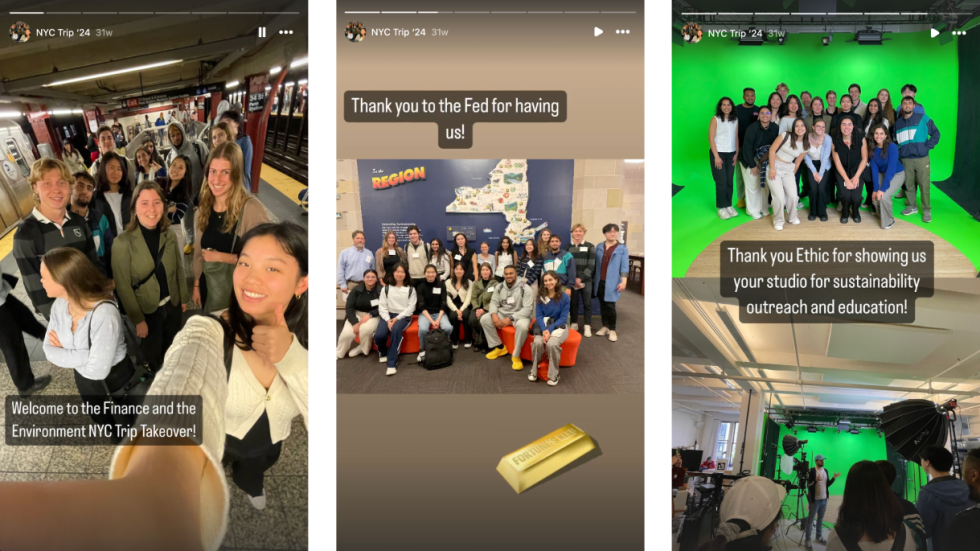
In New York City, ENVS 1547: “Finance and the Environment” students visited the Federal Reserve and Ethic, gaining first-hand insights into sustainable finance.
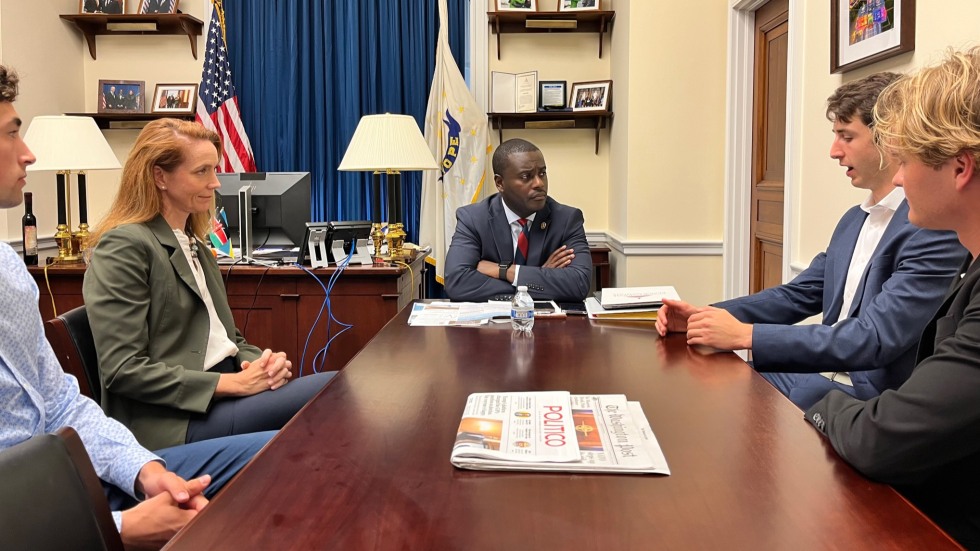
In Washington, D.C., students from ENVS / EEPS 0360: “Solving the Climate and the Carbon Challenge” presented an emissions reduction plan to Rhode Island’s congressional delegation, proposing a shift from flights to trains as a climate-friendly business strategy.
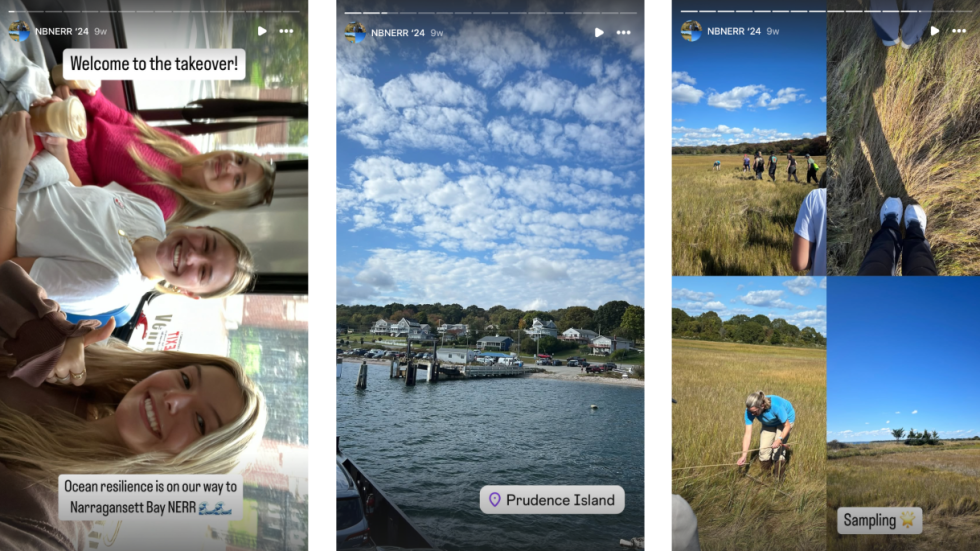
In October, students in ENVS 0717: “Ocean Resilience: Ecology, Management, and Politics” headed to Prudence Island to visit Narragansett Bay National Estuarine Research Reserve.
Summer video-stories: Students provided a first-hand look at their internship experiences
Twenty undergraduates pursued research and internship experiences through IBES during summer 2024. In short-form videos, five of the students captured moments from their local and global pursuits.
Summer '24 Research
IBES funded 20 undergraduate research and internship experiences in summer 2024. Here are a few of the students' stories in their own words.
IBES faculty were honored for transforming scholarship into real-world impact
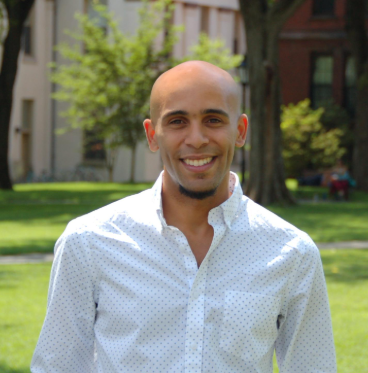 | For his work with Shelterwood Collective and beyond, IBES Assistant Professor Myles Lennon was granted a prestigious 2024 Howard R. Swearer Engaged Faculty Award, which honors faculty who have intentionally and efficiently integrated community engagement into their pedagogy. |
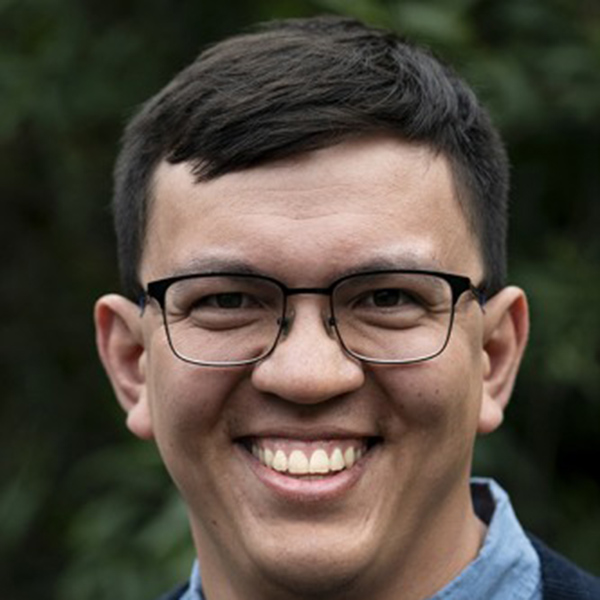 | In recognition of his commitment to fostering an inclusive and supportive academic environment, IBES and DEEPS Assistant Professor Daniel Ibarra received the Graduate School Faculty Award for Advising and Mentoring in the physical sciences. |
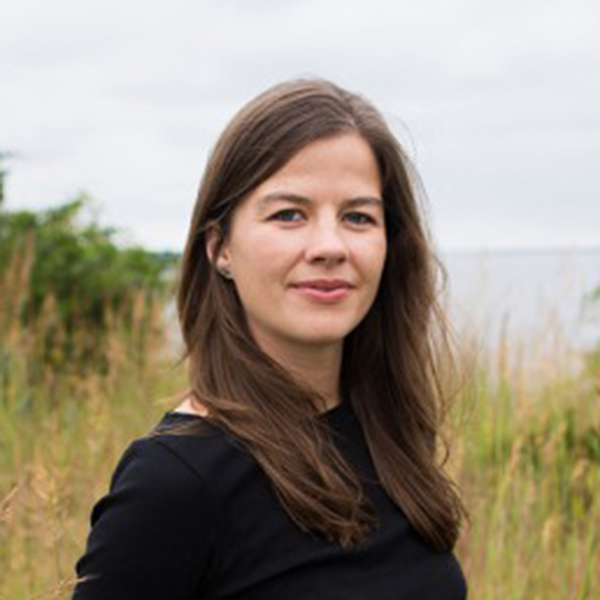 | IBES Faculty Fellow Elizabeth Rush, an assistant professor of the practice in the Department of English, won the Dean’s Award for Excellence in Teaching in 2024. |
Strategic Plan Goal #2: IBES is driving solutions-inspired research
Solutions-focused research at IBES has gained major momentum, from new funding for climate-health initiatives to a rise in sponsored projects and impactful faculty awards, each bringing the institute’s real-world impact into sharper focus.
NASA awarded grant to study mysterious muskrat decline
December 16, 2024 | A groundbreaking transdisciplinary project led by IBES researcher Laurence C. Smith has just received a prestigious NASA grant to investigate the alarming decline of muskrat populations in the northeastern United States by examining the impacts of invasive Phragmites australis and water level variability on their habitat across several wetland sites. This effort, which began/got its start with an IBES Seed Grant in 2021, will leverage a range of technologies—such as remote sensing, aquatic environmental DNA (eDNA), and NASA's SWOT satellite—to explore potential causes such as habitat loss, invasive species, and fluctuating water levels. The project combines ecological expertise, advanced satellite data, and collaborations with state environmental agencies across eight states, aiming to uncover the drivers behind this critical biodiversity loss and inform conservation solutions.
IBES launched Equitable Climate Futures (ECF) initiative to foster interdisciplinary, cross-sector climate solutions research
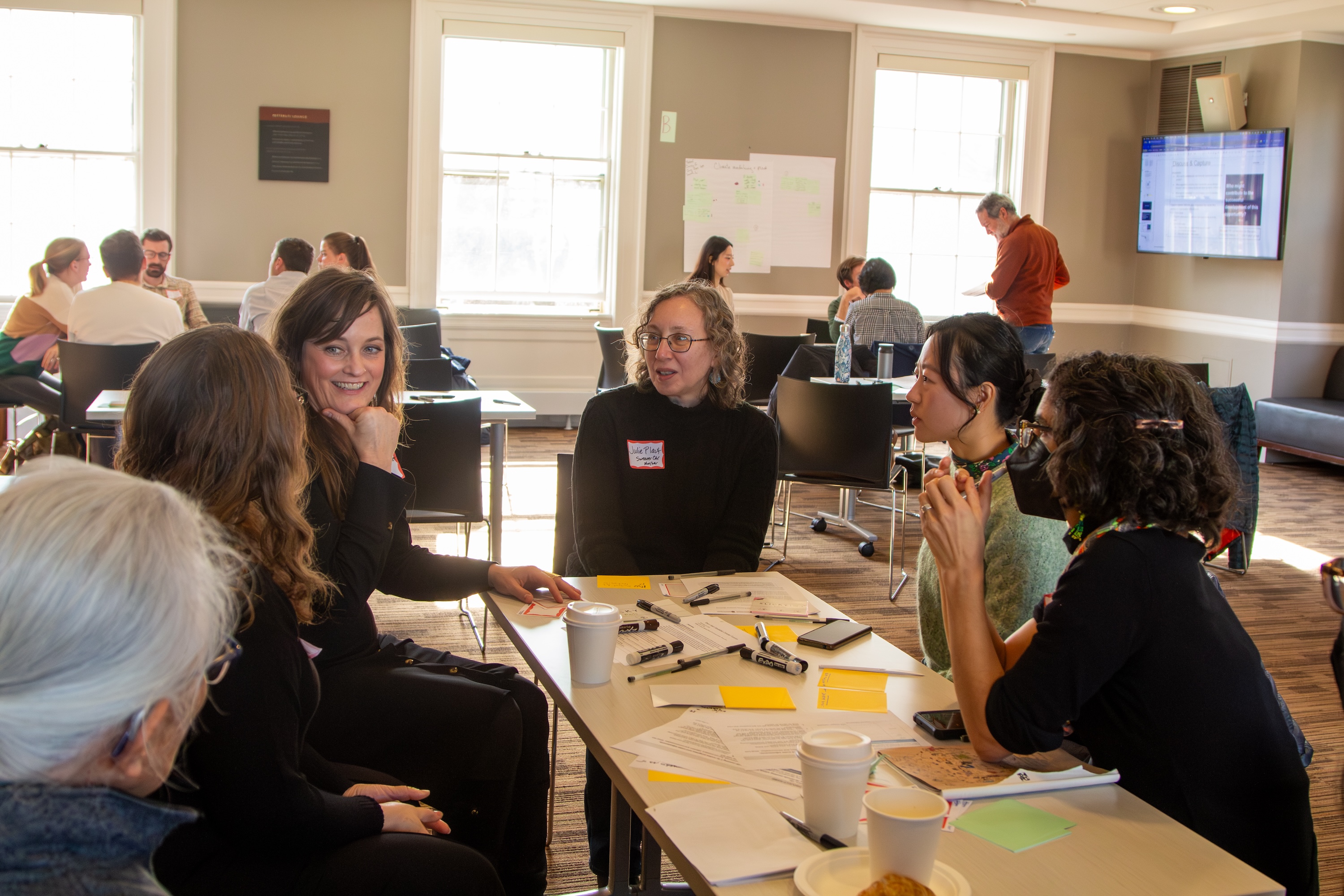
Spearheaded by IBES, Equitable Climate Futures seeks to advance climate solutions in Rhode Island, New England, and beyond by funding Working Groups composed of faculty from across campus as well as non-academic research partners. The ECF town hall in November brought together 30+ faculty experts to brainstorm about new research projects and partners.
Progress in coastal resilience: Year 1 of the 3CRS Program
In its first year, the Community-Driven Coastal Climate Research & Solutions (3CRS) program, funded by a $6 million NSF grant and based at IBES, made meaningful progress in strengthening New England’s coastal resilience. Experts from six institutions collaborated across disciplines and partnered with local leaders in Providence, RI, and Bath, ME, ensuring the research addressed community priorities. Key advancements include installing water sensors to track rising levels—giving communities real-time data on local climate risks— and launching the Coastal Resilience Monitoring System (CRMS), which helps communities better prepare for climate challenges.
IBES-led initiatives achieved major advances in climate policy work
In 2024, IBES faculty and researchers made significant strides in influencing climate policy through leadership roles and expert contributions across a variety of national and global platforms.
IBES director Kim Cobb was appointed to the Rhode Island Legislative Commission on Climate Change
The Rhode Island Legislative Study Commission on Climate Change Impacts and Solutions is charged with exploring the local effects of climate change, such as rising sea levels and their economic implications, while identifying potential state-level adaptations like green infrastructure and shoreline protection. Cobb’s expertise will contribute to interdisciplinary discussions on strategies for mitigating the impacts of our changing climate.
Meredith Hastings stepped in during air pollution emergency
By contributing air quality data and a statement to NBC10, professor Hastings, project lead of Breathe Providence, played a key role in responding to a fire at the RI Recycling Metals plant. Her work helped secure a court order to keep the plant shut down, providing valuable evidence in support of environmental justice efforts in Providence.
Amanda Lynch at the World Meteorological Organization Executive Council
In June, Professor Lynch attended the 78th session of the WMO Executive Council in Geneva, where she serves as the chair of the Research Board. Lynch played a key role in advancing global climate initiatives, including the Global Greenhouse Gas Watch and Early Warnings for All initiative.
Timmons Roberts served on the Intergovernmental Panel on Climate Change (IPCC) scoping meeting
Professor Roberts was invited as an expert to the IPCC Scoping Meeting, where participants helped outline the Working Group contributions to the Seventh Assessment Report. This meeting will inform global climate action strategies in the coming years.
IBES scholars were featured in more than two dozen publications
Explore highlights from this year’s published research, including work from faculty, postdocs, graduate affiliates, and more.
Research highlights
Proxies for Justice
Lina C. Pérez-Angel write in this article. "Correcting the record will require new methods and new mindsets.
Sponsored research saw sustained growth
.png)
IBES has seen a roughly five-fold increase in sponsored research by core faculty the past five years, with new awards this fiscal year on track for an all-time record high. In this way, IBES plays a key role in advancing one of Brown’s top goals: to significantly grow its sponsored research portfolio.
2024 Catalyst Research Award recipients drove impactful discoveries
The IBES Catalyst Research Awards empower faculty to tackle global challenges through interdisciplinary research that engages with communities and drives real-world impact. This year’s winners are researching the intersection of climate change and public K-12 education; working to improve perceptions of water quality in West Jackson, Mississippi; convening a working group on environmental justice; and documenting the lives of female land stewards in Colombia.
As a public health researcher working in a vulnerable community, it is important for me to ascertain who the most important public messengers are. I also have to have the humility to recognize that I may not be that messenger, and instead empower the voices of those who are. I am excited to gain perspective.
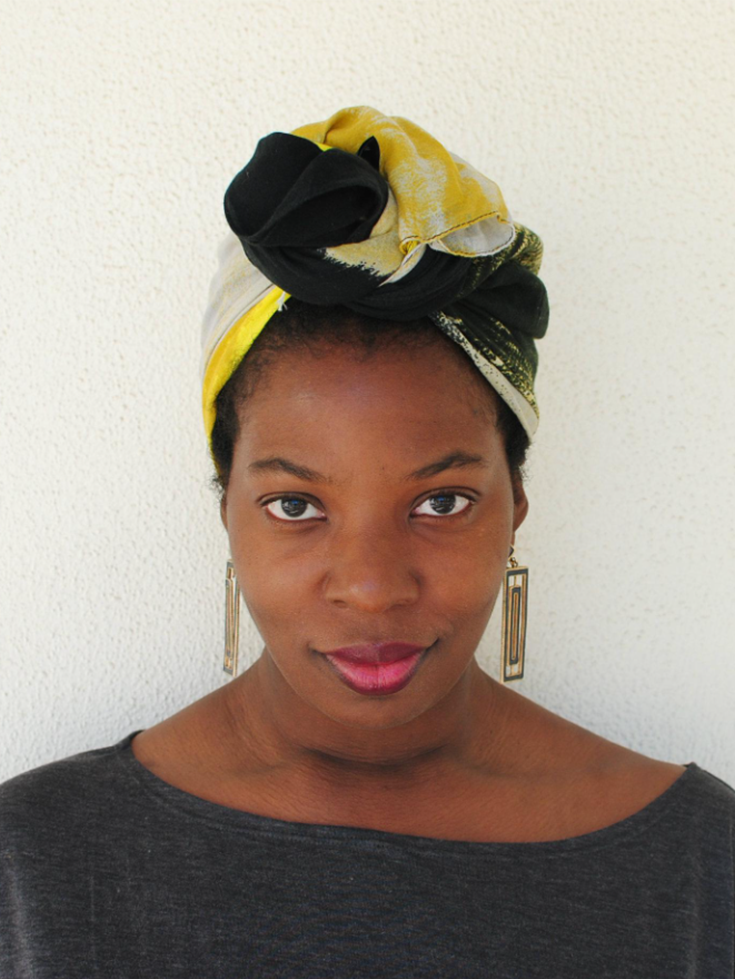
Strategic Plan Goal #3: IBES is engaging for impact
With a focus on real-world solutions, IBES is leading initiatives that empower communities, shape policy, and spark important conversations around sustainability.
A people-first approach to air quality science
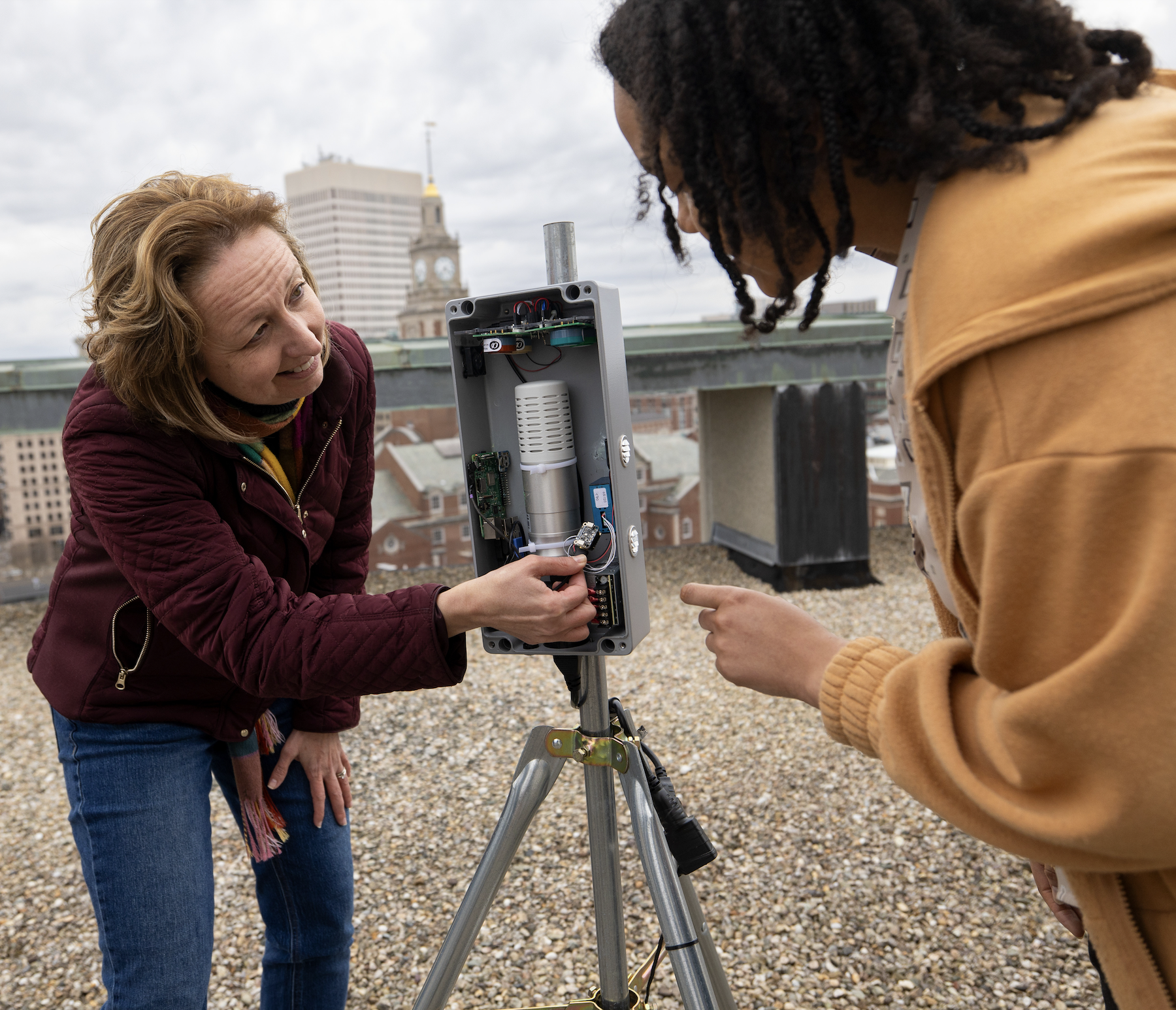 Breathe Providence, an IBES-based hyperlocal air monitoring network led by IBES Professor Meredith Hastings, is working with more than 10 community groups and government stakeholders to build relationships, gather data, and develop an unprecedented understanding of air quality in Providence. Over the past year, the project convened a resident task force, hosted air-filter-building events at local libraries, and collaborated with organizations like the Providence Emergency Management Agency to shed light on the effects of overlapping environmental hazards. Ultimately, the project seeks to increase awareness and support more targeted policies that cut emissions and tackle environmental inequalities.
Breathe Providence, an IBES-based hyperlocal air monitoring network led by IBES Professor Meredith Hastings, is working with more than 10 community groups and government stakeholders to build relationships, gather data, and develop an unprecedented understanding of air quality in Providence. Over the past year, the project convened a resident task force, hosted air-filter-building events at local libraries, and collaborated with organizations like the Providence Emergency Management Agency to shed light on the effects of overlapping environmental hazards. Ultimately, the project seeks to increase awareness and support more targeted policies that cut emissions and tackle environmental inequalities.
Possibly podcast expanded across the U.S.
Distilling complex climate challenges into relatable, actionable insights
A collaboration between IBES and The Public’s Radio, Possibly has now aired in 19 states, with aspirations for nationwide reach. Powered by student reporters, the series has produced over 250 episodes, such as:
Faculty shared their expertise in 130+ news outlets
IBES core faculty made significant contributions to the news landscape in 2024, with their expertise featured in over 130 pieces of media globally. Whether through interviews on CNN or commentary in the Associated Press, these specialists continue to inform vast audiences about the risks posed by climate change and measures we can take to minimize them.
IBES faculty in the news
We Need a Shared Vision for Fixing the Climate Problem
IBES communications reflected a year of strategic growth
IBES has achieved significant communications milestones over the past year, bolstering its reputation and amplifying its impact in climate and sustainability.
Expanding and serving the IBES community: 2024 event highlights
IBES hosted nearly a dozen community events and student-focused gatherings this year alongside, fostering connections across campus and beyond.
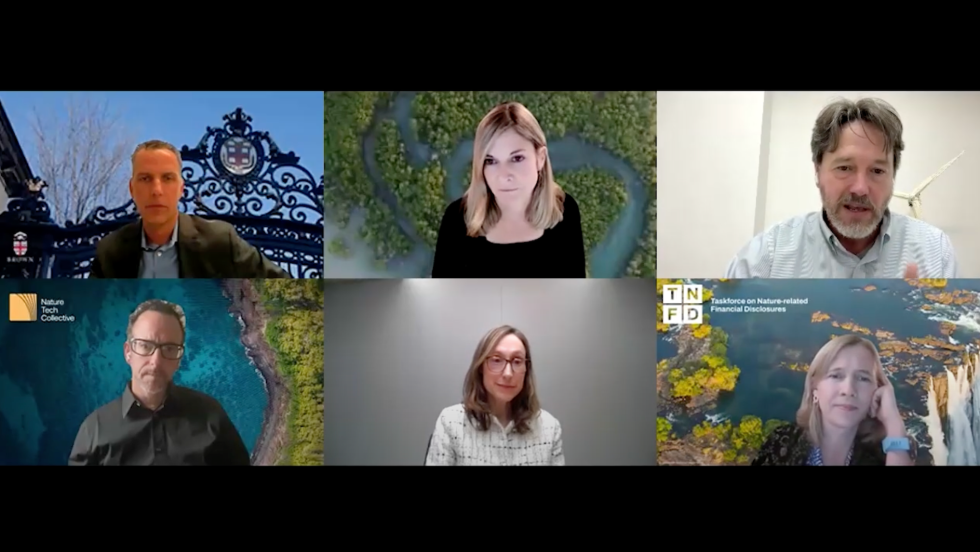 Play
Play
December 10: Values at Risk: Nature, Climate and the Systematic Risk to Our Economic Future: This online webinar brought together experts from finance, insurance, risk management, and environmental sectors to explore new strategies for assessing and managing climate risks. Discussions highlighted how these approaches can drive resilience and recognize nature as a vital economic asset.
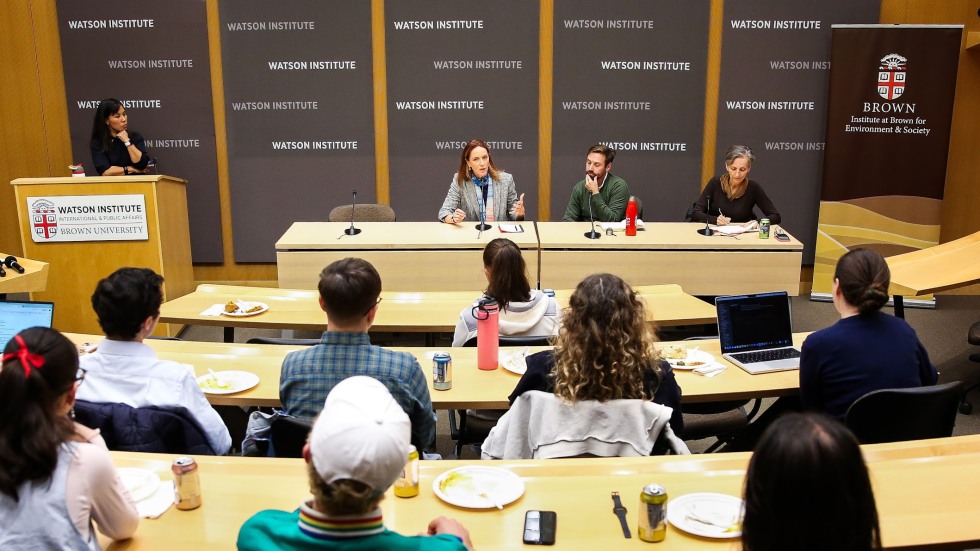 Play
Play
October 8: “Climate Action and the 2024 Election: Science, Policy, and Disinformation” | From left to right: Moderator Carrie Nordlund, IBES Director Kim Cobb, Information Futures Lab Co-Founder and Director Stefanie Friedhoff, and Climate Solutions Lab Sociologist Chris Rea at the panel.
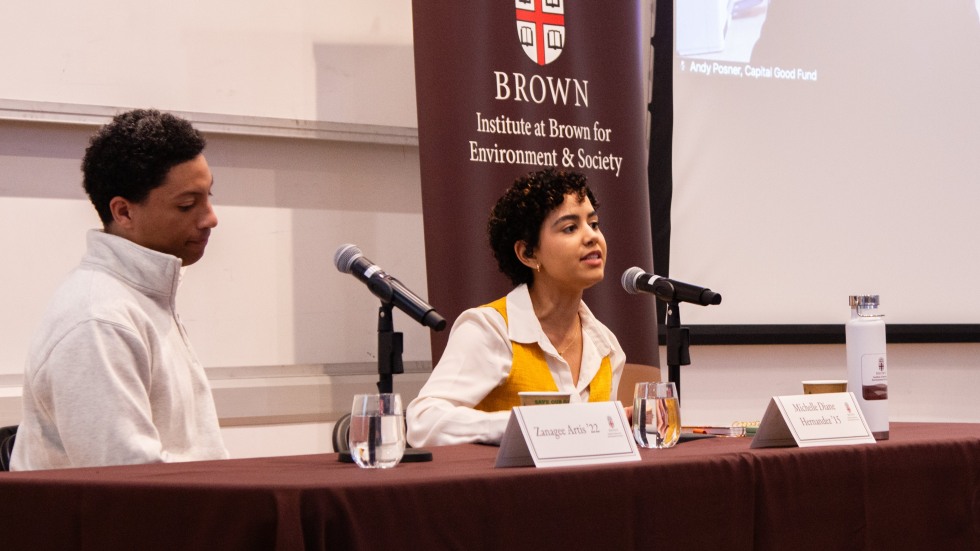 Play
Play
October 26: “Climate Action and the 2024 Election: Brown Alumni Innovating at Local, State, and Federal Levels” | Zanagee Artis ’22 of the Natural Resources Defense Council and Michelle Diane Hernandez ’15 of Climate Power speak about their work at the intersection of climate and policy.
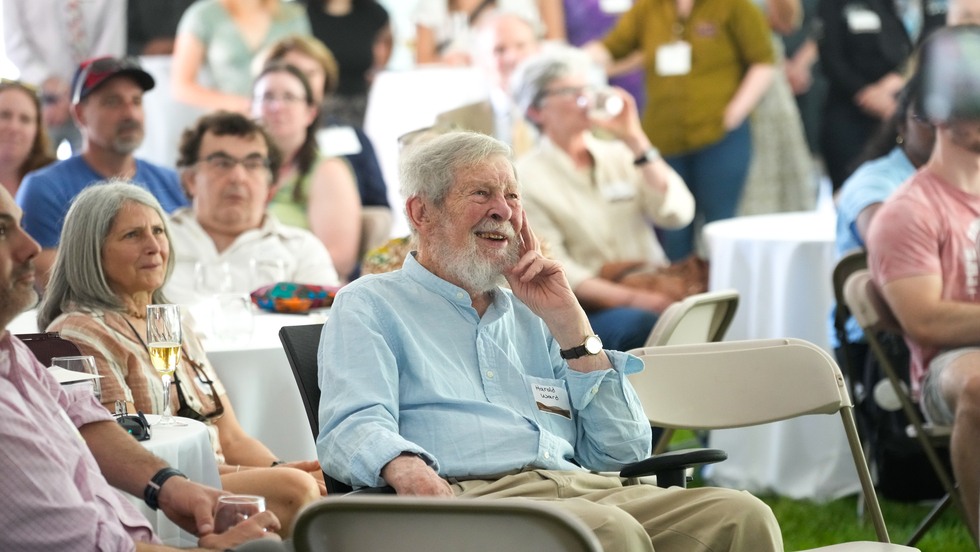
May 24: IBES 10 Year Anniversary Party | More than 200 community members gathered on campus to celebrate the achievements of Emeritus Professor Harold Ward, the founder of the Environmental Studies and Sciences program at Brown.
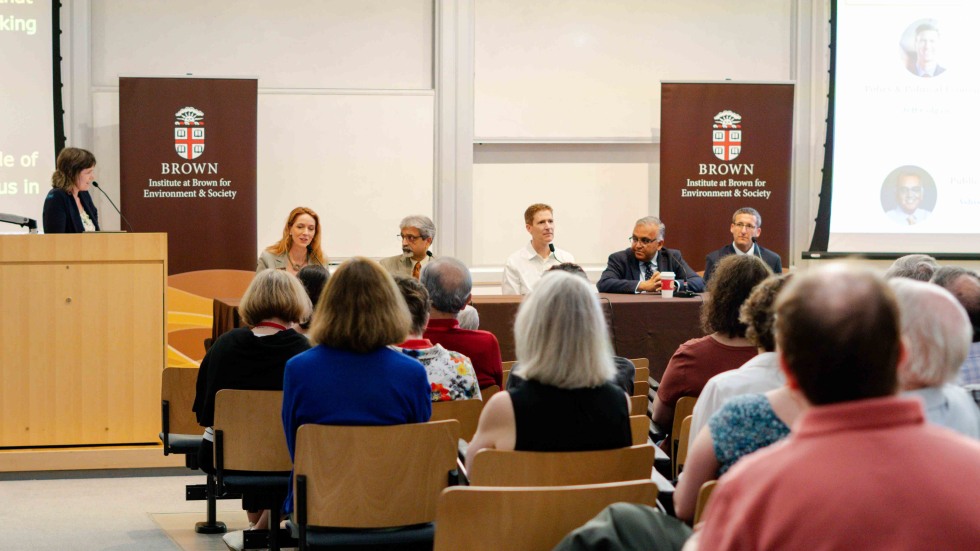 Play
Play
May 25: “Solving the Climate Challenge: How Brown Works Across Disciplines to Create a Sustainable and Equitable Future” | IBES’ Commencement Weekend Forum offered a look at how Brown faculty from various units are working together to address climate change. From left to right: IBES Director Kim Cobb, Initiative for Sustainable Energy Director Nitin Padture, Climate Solutions Lab Director Jeff Colgan, Dean of Public Health Ashish Jha, and Associate Provost for Sustainability Stephen Porder.
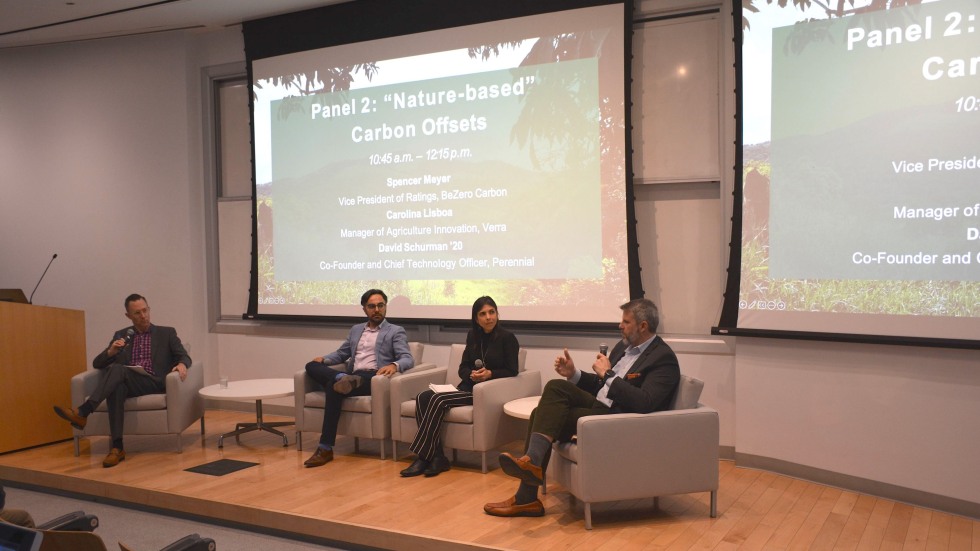 Play
Play
April 13: Carbon Offsets: Promise, Perils and the Path Forward: During this day-long conference, over 200 attendees gained insights into the complexities of carbon offsets and their impact on global efforts to combat climate change. Recordings of the three panels are available online. From left to right: James Kellner (moderator and associate professor at IBES), David Schurman ’20 (co-founder and CTO at Perennial), Carolina Lisboa (manager of agriculture innovation at Verra), and Spencer Meyer (vice president of ratings at BeZero Carbon).
Strategic Plan Goal #4: IBES is building a foundation for success
With new faculty and staff appointments, a renewed focus on diversity and inclusion efforts, and a growing alumni network to support its future goals, IBES is positioning itself for long-term growth and impact.
A renewed focus for the IBES Diversity & Inclusion Action Committee (DIAC)
Over the past year, IBES students, staff, faculty, and postdocs have worked together to shape the committee’s priorities and address key issues raised in last spring’s Climate Survey, which assessed how valued, respected, and our community feels. Recent progress includes:
- hosting DEI forums in May and October with enthusiastic student participation
- strengthening environmental justice in the curriculum
- exploring ways to improve shared spaces to better meet students' needs
.jpg)
These efforts are supported by the expansion of the IBES leadership team, including Brown’s first unit-level Faculty Director of Diversity, Equity, and Inclusion—Dan Ibarra, Manning Assistant Professor of Earth, Environmental, and Planetary Sciences & Environment and Society—who is dedicated to championing these efforts and ensuring meaningful progress.
IBES expands team with five new hires
These new staff and faculty are playing crucial roles in supporting IBES’ growth and advancing its 2023-2028 Strategic Plan.
-

Aparajita Majumdar
Assistant Professor of History & Environment and Society -
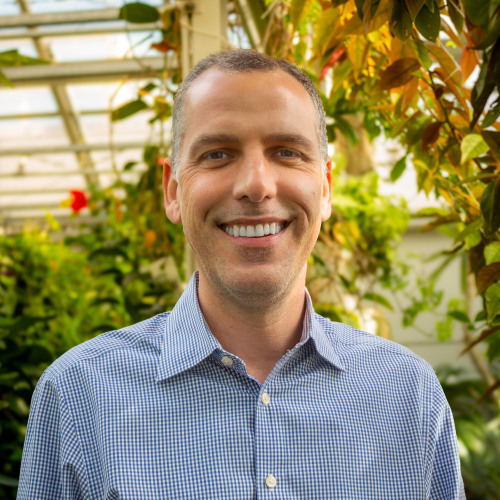
Mark Tracy
Professor of the Practice of Sustainable Finance and Investing -
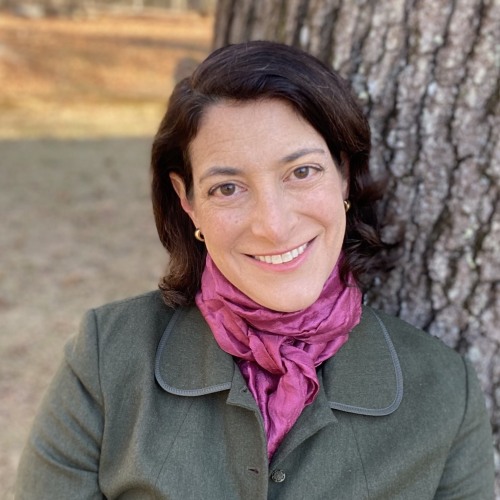
Katie Silberman
Director of Strategic Operations -
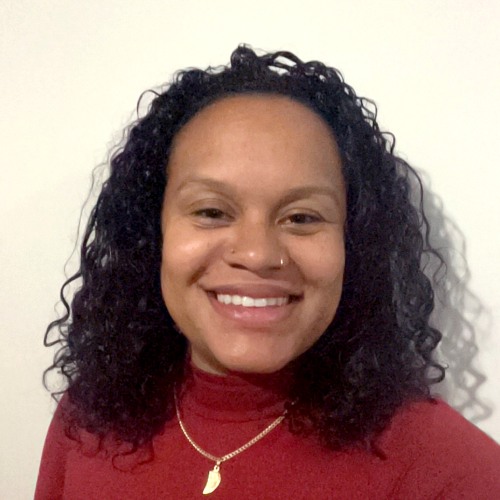
Nelsy Reyes
Academic Coordinator -

Jill Ouellette
Administrative Coordinator
IBES Alumni & Friends Network attracted 500 members in its first year
Launched in October 2023 and led by an active governing board, the IBES Alumni & Friends Network has quickly grown to nearly 500 members, fostering connections between alumni, parents, students, and professionals. Members gain access to exclusive events, early updates on IBES initiatives, and opportunities for mentorship and collaboration.
IBES welcomed 40+ new faculty affiliates from 20+ departments across campus
This year, IBES added over 40 new faculty affiliates from more than 20 departments, schools, and centers across Brown, bringing the total to over 80 faculty from 30 units across the University. These interdisciplinary scholars in climate, sustainability, and the environment are enhancing the IBES community and fostering collaboration across campus. IBES supports their work by promoting their research,sharing opportunities, and hosting events where faculty from diverse specialties can meet and discuss opportunities to work together.
Giving opportunities for IBES include endowed funds to support faculty hiring and retention, postdoctoral fellowships, as well as endowed and current-use programmatic support for undergraduate research, education, and internship opportunities; signature research initiatives (e.g. faculty seed grants, Equitable Climate Futures); and new programming in sustainable investing and finance. To learn more, please contact: |
|
Looking ahead, IBES is poised to turn today’s challenges into tomorrow’s solutions. By connecting people, ideas, and resources, we’re building a future where climate and sustainability innovation drives meaningful change. With a bold vision for diverse, sustained partnerships, and the energy of our extraordinary community, the possibilities for impact are limitless.
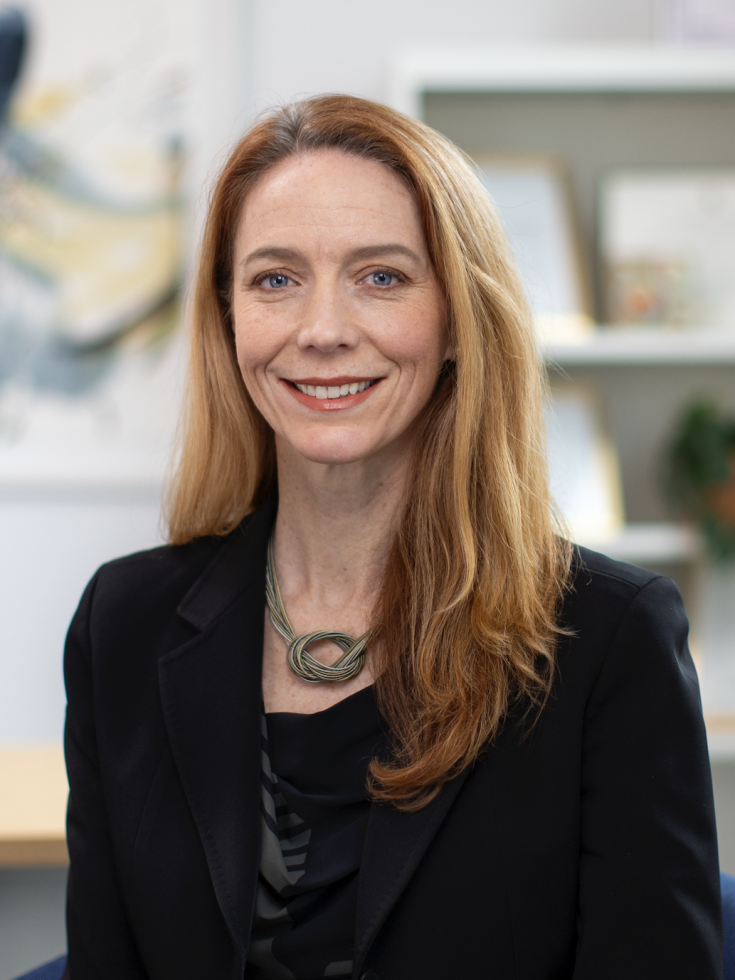
Subscribe to IBES' newsletters
Stay up to date on all things IBES with the monthly IBES Insider or the weekly student bulletin.
